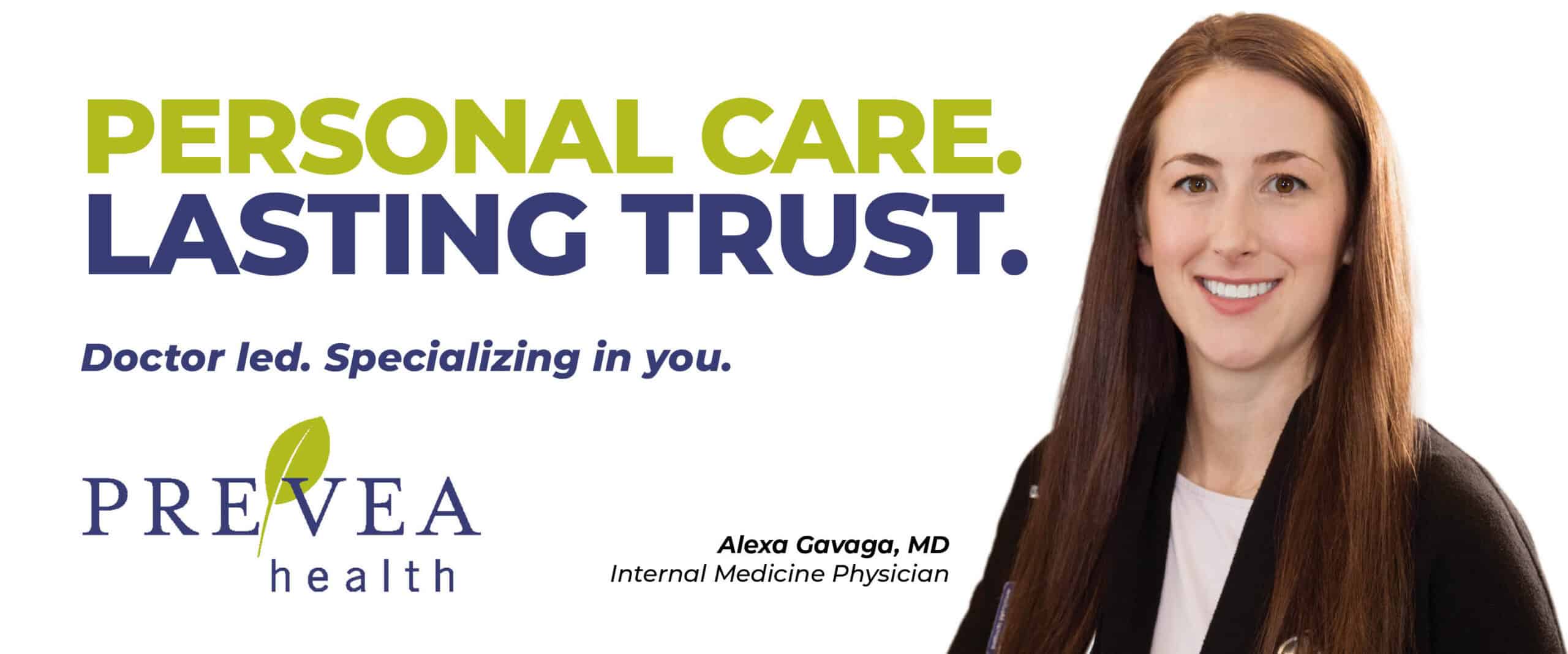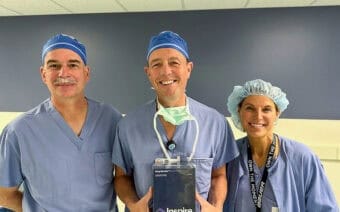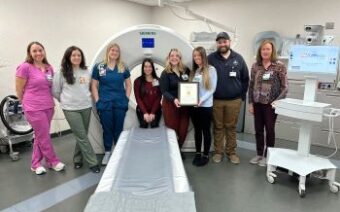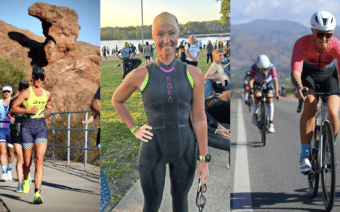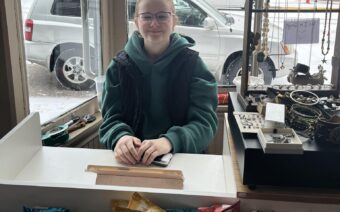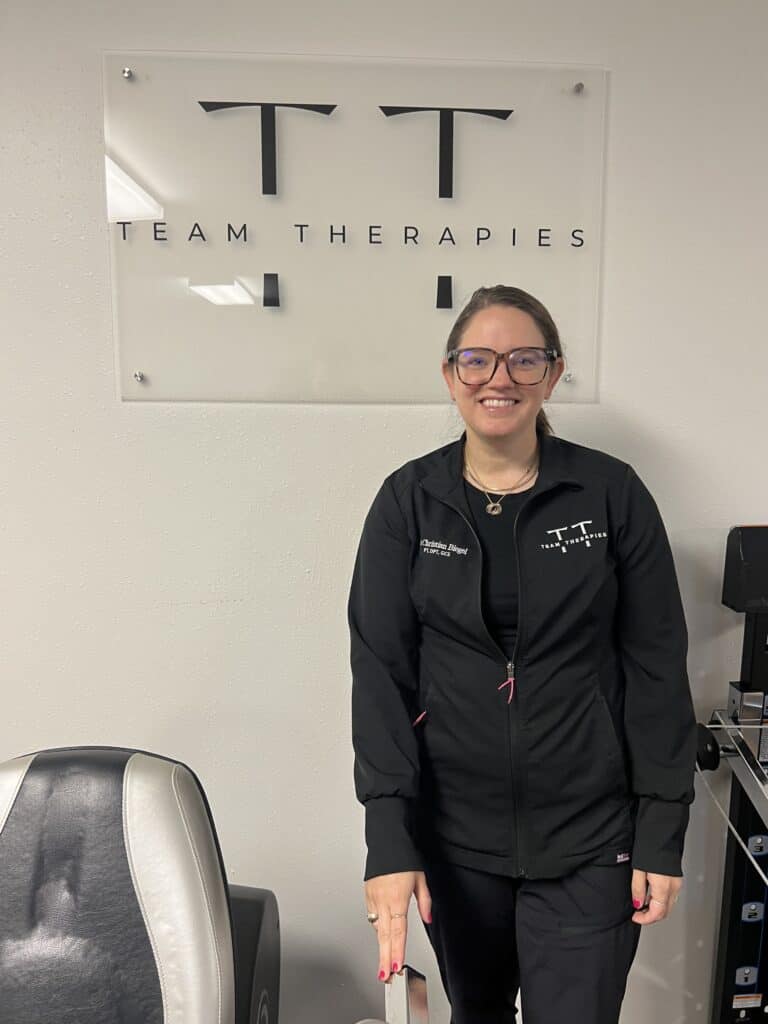
July 7, 2025
WISCONSIN RAPIDS – Christian Biegel said she knew she wanted to be a physical therapist since she was 14 years old.
Fast-forward to today, and her woman-owned, concierge physical therapy business is helping patients move, feel, do and be better.
Biegel said that’s been her approach to physical therapy since she began performing clinical rotations.
Though initially, she said she leaned toward providing those services to athletes and even did rotations with the Houston Astros and Houston Texans.
But it was during a rotation with the older population in a nursing home that Biegel said she uncovered her true passion: providing physical therapy to seniors.
“I love working with older adults,” she said. “They share awesome wisdom and stories and most of all, they all want to work.”
The foundation
Biegel earned her Bachelor of Science degree in kinesiology from Texas A&M University and then received her Doctor of Physical Therapy from the University of St. Augustine.
As she began her physical therapy career, Biegel said she soon discovered a desire to work for herself, unencumbered by insurance and visit duration limitations for her patients – both of which roll up under patient autonomy.
“It’s long been a passion of mine for my patients to have autonomy in their plan of care,” she said. “There are patients who have said [after the insurance-covered eight physical therapy sessions run out], ‘But I want to work with you yet –’ and I would say ‘yes’ and the doctor would say ‘yes,’ but an insurance auditor would say ‘no.’ It broke my heart to say, ‘Sorry, Bob, I can’t help you.’ That wore on me.”
Biegel said this recognition prompted a conversation with her husband, Hayden – who co-owns Team Therapies with her today – on what to do next.
“He said, ‘Either you’re going back to school to find out what you want to do or you’re going to start your own business,’” she said. “My husband’s family is all entrepreneurs, and it was only a matter of time before I jumped in on that.”
Team Therapies becomes a reality
For the sake of patient autonomy and quality, consistent health care, Biegel said she opened her mobile physical therapy practice Nov. 8, 2022.
Then, just a few weeks later – on Nov. 17, 2022, her birthday – Biegel said she learned she was pregnant.
To help manage her patients while she recovered from her C-section delivery, Biegel said she brought on a physical therapy assistant as a 1099 contract employee.
From there, Biegel said she moved to part-time status (PRN) with work elsewhere – dedicating about 70% of her time to Team Therapies and 30% elsewhere – until February 2024, when she went all in with Team Therapies work.
Though today her patients range in age from eight to 97, Biegel said the median age of her patients is 84.
Furthermore, she said many of those patients are differently abled or unable to drive themselves, which is what prompted her to establish a mobile concierge physical therapy clinic.
Biegel said her repertoire in her vehicle is minimal but powerful – including several hand and ankle weights, putty for hand exercises, therabands, a variety of assistive devices and her dry needling kit.
She said she doesn’t need elaborate equipment to help most of her patients.
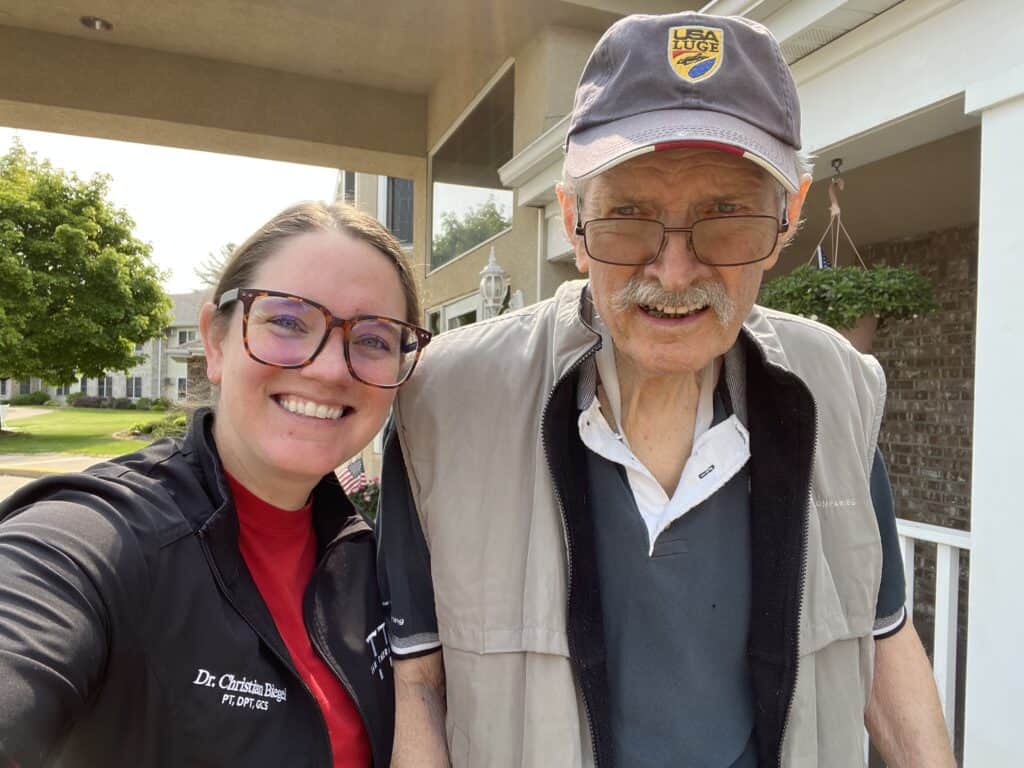
“Physical therapy is so functional, and we can use a soup can for a weight if needed,” she said. “I don’t need an X-ray or an MRI to make a diagnosis. I can walk into any room and be able to help someone. When someone comes to me and says, ‘My back hurts,’ I can screen them then and create a plan based on my diagnosis and assessment.”
Biegel said about half her patients fit into the category of preventative work – with patients often referring to her as their “concierge clinician.”
Others, she said, seek her services because they struggle with everyday movements and strength.
“I have many patients who say, ‘Oh, Christian, I didn’t expect my 70s to be like this – I thought I’d hike the Grand Canyon with my grandkids and instead, I can’t walk to the bathroom,’” she said. “So, we create a plan.”
Others, Biegel said, seek her services because of a specific diagnosis, such as back pain or a rotator cuff tear.
Though the focus of her practice is physical therapy, she said she also includes a variety of subspecialties – including home safety assessments, ergonomic and workplace analysis and wellness.
Biegel said physical therapy can also focus on strength, balance, coordination, walking/ambulation, decreasing pain, improving quality of life and assisting in aging in place.
The impetus for seeking her services, she said, runs the gamut – from patients seeking to stay out of a wheelchair, attempting to avoid a joint surgery, maintaining or building strength and range of motion.
In many cases, Biegel said she works with seniors in assisted living facilities who are “on the bubble” of needing a higher level of care that they would like to avoid, if possible.
“I work with a lot of facilities that call me [and say] ‘Bob and Louann are on the bubble – can you provide care?’ – because if Louann falls again, they will need to move into another level of care,” she said. “My passion is aging in place.”
Introducing a clinic setting
For patients who are more mobile or require a bit more variety than what she brings in her truck, Biegel said they may visit the physical clinic (1060 Center St., Wisconsin Rapids) – which she established in March 2023 to provide another option to patients as well as house services, such as PEMF therapy, which aren’t easily transported.
“That machine is a passive modality that helps to decrease pain and initiate healing from the inside out,” she said. “I can make a muscle nice and strong, but it needs to metabolize correctly or the patient won’t make as much progress.”
Biegel said the facility is housed on her in-laws’ 107-year-old cranberry farm and was originally a garage that has had many iterations over the years.
She said it’s allowed her to accommodate the needs of patients she may have previously tried to meet elsewhere (such as a YMCA) to perform more dynamic exercises.
Specialization in seniors
Biegel said caring for the community’s aging population is the driving force of her work.
As one of only 55 board-certified geriatric specialists in the State of Wisconsin, she said she practices a holistic approach to treating older adults.
Biegel said this includes advanced knowledge on the unique health needs and conditions of older adults, including common geriatric syndromes such as dementia, falls and incontinence. The specialization, Biegel said, provides her with a deep understanding of the impact of aging on the body and mind – including the effects of aging on various organs and systems.
Biegel said being a geriatric specialist means she specializes in treating patients ages 65 and older – which is a far swing from what a general practitioner does in providing care based on “normal values” for a “normal adult” who is defined as someone up to age 45.
In contrast, she said pursuing this additional certification requires a deep dive into osteoporosis, nutrition, balance deficits, cardiovascular health and issues, COPD and more – resulting in a more in-depth understanding of physiology.
Geriatric specialists, she said, strive to optimize their patients’ quality of life by implementing evidence-based interventions, preventing falls and injuries and promoting independence.
“This specialty has helped me become a better clinician,” she said.
Biegel said her passion for helping the older population ultimately led her to become LSVT (Lee Silverman Voice Treatment) BIG-certified, a credential earned after completing a training program focused on improving movement in individuals with Parkinson’s disease and other neurological conditions.
The certification, she said, signifies expertise in the LSVT BIG treatment protocol, an evidence-based approach designed to help patients recalibrate their movements for better function in daily life.
Whether a patient has Parkinson’s or is simply a senior, Biegel said she has advanced training and knowledge to serve their unique needs.
“I often tell people that if they’re older than 65, they need to come see me,” she said. “PTs are just generalists like general practitioners are, but being a geriatric-certified specialist and [having] my LSVT-BIG [certification] shows I have a very strong passion for working with seniors and the neurologically diverse population, including [people with] Parkinson’s.”
Biegel said she currently has four patients in her caseload with the disease, and pursued this learning at the request of the wife of a former patient with Parkinson’s disease.
In doing so, she said she is now able to provide much more in-depth care to Parkinson’s patients.
Biegel said her pursuit of ongoing education is evidence of her desire to always gain knowledge and resources for her patients.
“If there is a better way to help someone, I want to learn it and do it,” she said.
Biegel said she has continued to pursue professional development with zest, becoming both dry needling I (DN-1) and dry needling 2 (DN-2) certified in 2025.
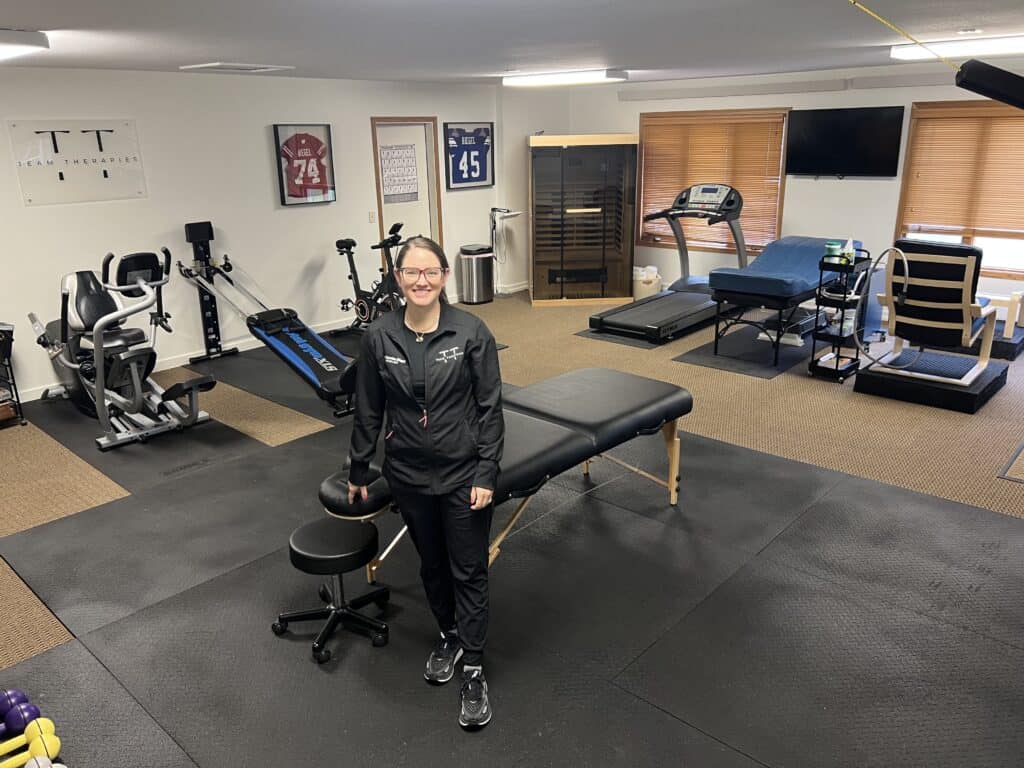
Dry needling, she said, has allowed her to further support patients with musculoskeletal and neuromuscular conditions – targeting muscle tissue at a deeper level than traditional manual therapies by stimulating the body’s natural healing process.
“Dry needling has taught me so much,” she said. “I thought I knew anatomy well, but now I have a constant, rotating, 3D map in my mind. I love to walk into a room and help someone.”
In addition, Biegel said both she and Hayden became Pulse PEMF certified in 2024.
Personalized, all-encompassing care
On an average day, Biegel said she will see five to seven patients for hour-long sessions, unless the patient is scheduled for an evaluation, which lasts two hours.
In contrast, she said that when she was a student, she saw 30 patients in one day, limiting the quality time she got with each patient before passing them on to another provider.
It is only in her own time, after work hours, that Biegel said she types up an evaluation, accounting for tests, measurements, assessments and treatment plans, sending it to patients via email or in the mail, if preferred.
Every patient, she said, receives a detailed evaluation complete with details, goals and solutions; a detailed home exercise program that’s presented with video, text, pictures or writing; and a thorough safety assessment of the home for aging in place and fall prevention and recovery training, when appropriate.
When she is face-to-face with the patient, Biegel said she does everything with pen and paper.
“Everything we do is 100% personalized,” she said. “A lot of exercises [we do] you won’t find on the internet because everything is so deeply personal.”
Nowadays, Biegel said she delivers most of her care between 8:30 a.m. to 4:30 p.m., though she flexes to accommodate patients’ schedules.
She said her operational model offers single visits and a variety of packages, and to sidestep cumbersome claims processes and create more patient autonomy and immediacy of care, Team Therapies does not accept insurance.
“It’s a passion of mine that my patients have autonomy in their plan of care,” she said. “Our approach prioritizes patients’ individual needs, offering bespoke treatment plans, extended appointment times and a hands-on approach to therapy without insurance [dictating] what can and can’t happen. I value autonomy, a plan of care and quality and consistent healthcare above all else.”
Biegel said initial evaluations typically require two hours, whereas appointments run an hour – both of which are done with great intention to ensure her assessments are thorough, and to encompass more than where an issue may be presenting.
“For example, even if it’s a patient needing a knee replacement, I look at the neck, hips, feet, shoes and may even assess their pillows and see how they are lying down,” she said.
How patients seek and receive care, Biegel said, is as varied as the patients she sees.
“I can see people for whatever they want, however long they want,” she said. “I can do a 10-minute assessment for things such as balance problems, or if someone says, ‘I tweaked my knee while shoveling,’ and I can say, ‘Let’s work on the knee.’”
Biegel said her business is very hybrid, with about 50-60% of patient visits taking place in their homes in the winter.
She said she typically services patients in Wisconsin Rapids, Plover, Stevens Point and Nekoosa, the farthest she has traveled, but said she is open to serving other areas as well.
Biegel said word of mouth has proven to be the most powerful marketing tool, and the most productive one – though she said she has dabbled in social media advertising and partnering with other local businesses.
Care rooted in personal connection
This time of year, Biegel said, is her busy season, as snowbirds are all back in the area for the season – with 27-30 visits on her calendar each week.
In the winter, she said that decreases to 18-22 visits per week.
Biegel said she appreciates the work-life balance the practice provides her, as she loves being a wife and mother in addition to a physical therapist – noting that she likes being able to drop her kids off in the morning and pick them up after work.
“My mom worked in education, and she was able to do those things as a single mom, and I am so thankful for her example of showing me what strong women can do,” she said.
Biegel said she has been very intentional about creating relationships with her patients – sending them Christmas and Easter cards, inviting them to her kids’ birthday parties and treating them as family.
“A lot of patients’ grandkids tell me, ‘Thanks for taking care of Mom or Grandma,’ because quality of life increases when they hang around you,” she said.
When she and Hayden established the business, Biegel said they intentionally used the plural “Therapies” in the name in recognition they would likely add more options to their repertoire over time.
She said that may be occupational therapy, personal training or other options they haven’t even explored yet.
Patient feedback, Biegel said, is overwhelmingly positive and features many core themes, from appreciation for filling a healthcare gap, to customized and personalized care, to her persistence in uncovering the root of pain and then addressing it, to the results she and her patients achieve.
“I love what I do,” she said. “I love PT, and I want people to move, do, feel and be better. My in-laws’ [family] has been in [Wisconsin] Rapids for more than 120 years, and my last name is very established for football, wrestling and cranberries. But I told Hayden, one day, it won’t just be known for those but also quality health care.”
 Lift off: American Drone aims to transform farming industry
Lift off: American Drone aims to transform farming industry CEO of Menomonie chamber selected for U.S. Chamber Fellowship
CEO of Menomonie chamber selected for U.S. Chamber Fellowship
